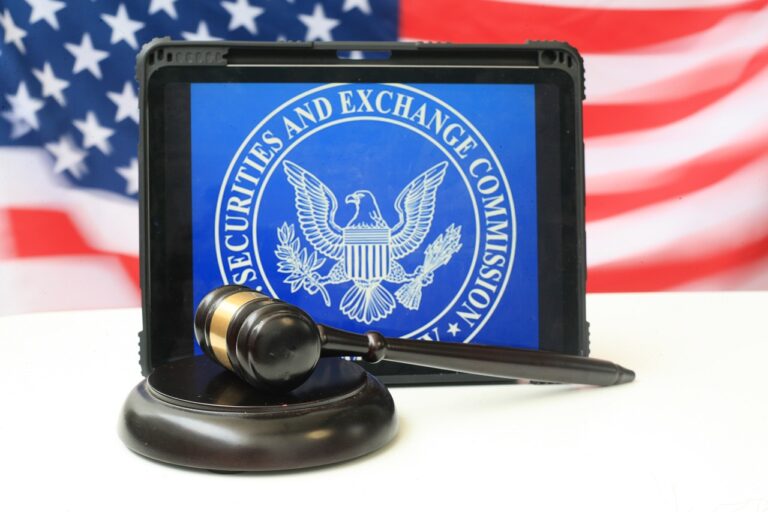On July 13, 2023, in the case of SEC v. Ripple Labs, Inc., document number 2023 WL 4507900 in the Southern District of New York, Judge Analisa Torres ruled in a summary judgment that while Ripple’s direct sales of XRP to institutional buyers were considered securities transactions, its sales on secondary trading platforms were not. The court also declined to grant summary judgment concerning allegations against Ripple executives Bradley Garlinghouse and Christian Larsen. The SEC had accused them of supporting Ripple’s purported violations, indicating that these claims must be resolved at trial (which is expected to start next month).
On March 22, 2024, James K. Filan, an American attorney known for his insights into legal proceedings involving financial regulations, revealed on the social media platform X that the Securities and Exchange Commission (SEC) has confidentially submitted its initial brief related to remedies, along with supporting documentation, in a sealed format. The details of these documents remain inaccessible to the public as of now. However, Filan noted that versions of these documents, redacted to omit sensitive information, are expected to be made publicly available by no later than March 26, 2024, offering stakeholders and observers insight into the SEC’s proposed actions or penalties in the context of this legal matter.
A short time ago, Ripple’s Chief Legal Officer, Stuart Alderoty, issued a statement in reaction to James K. Filan’s announcement regarding the SEC’s remedies-related brief. According to Alderoty, when the SEC’s brief becomes public on March 26, 2024, it will reveal the regulatory body’s request for $2 billion in fines and penalties against Ripple. Alderoty criticized the SEC’s approach, accusing the regulator of relying on statements that are “false, mischaracterized, and designed to mislead.” He argued that the SEC’s actions are not in faithful application of the law but are instead aimed at punishing and intimidating Ripple as well as the broader industry.
Alderoty’s statement suggests that Ripple views the SEC’s demands as excessive and unfounded, reflecting a deeper issue of regulatory overreach. Ripple’s response to the SEC’s brief is scheduled for filing next month, indicating that Ripple intends to vigorously defend its position. Despite the contentious nature of the SEC’s claims, Alderoty expressed confidence in the judicial process, stating a trust in the court to handle the remedies phase with fairness.
In a fervent response to Stuart Alderoty’s disclosure about the SEC’s legal actions against Ripple, CEO Brad Garlinghouse criticized SEC Chair Gary Gensler’s leadership for what he perceives as recurrent legal overreaches. Garlinghouse highlighted instances where judges have rebuked the SEC, citing a “gross abuse of power” in the DEBT Box case and a lack of “faithful allegiance to the law” in Ripple’s ongoing litigation. He pointedly criticized Gensler’s oversight in the case of SBFraud, emphasizing the disproportionality of the SEC’s $2 billion penalty request against Ripple, given the absence of any fraud or recklessness allegations.
Last week, Bloomberg News highlighted a significant judicial critique of the U.S. Securities and Exchange Commission (SEC) by Judge Robert Shelby from the Salt Lake City federal district court in Utah. In an unusual judicial censure, the judge lambasted the SEC for what he deemed a glaring overstep of its regulatory authority in its lawsuit against Digital Licensing Inc., also known as DEBT Box. This critique was detailed in an 80-page ruling following the SEC’s allegations in July 2023 that DEBT Box had swindled investors out of around $49 million, actions that initially led to a court-ordered asset freeze and receivership at the urging of the SEC.
The core of the judge’s rebuke was directed at the SEC’s conduct throughout its case against the cryptocurrency firm, especially after it was discovered that the SEC might have made “materially false and misleading” statements to obtain the asset freeze. A significant point of contention was the SEC’s unfounded claim that DEBT Box was moving investor funds overseas, a claim later found to be speculative and partially based on a DEBT Box official’s video on YouTube.
Judge Shelby’s harsh critique underscored the SEC’s use of misrepresentations and misleading assertions, which he saw as detrimental to both the case against DEBT Box and the broader integrity of the legal process. Consequently, Shelby ordered the SEC to reimburse DEBT Box for its legal expenses and other costs, marking a notable reprimand of the regulatory agency’s actions.
Featured Image via Pixabay









